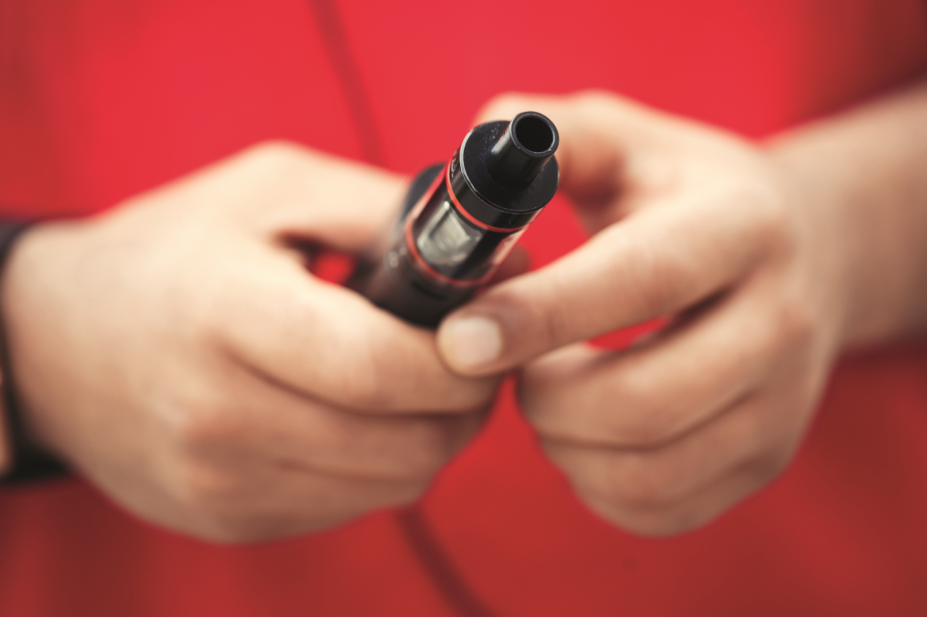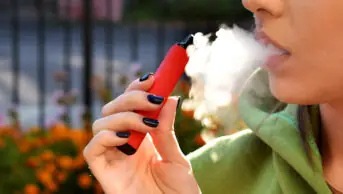
Shutterstock.com
Sweet flavouring agents in e-cigarettes and vaping products “should be banned to minimise the appeal to young people”, an updated policy on e-cigarettes published by the Royal Pharmaceutical Society (RPS) has said.
The policy document, published on 24 February 2020, also calls for more research and safety data on the long-term risks and benefits of vaping.
It says that while many ingredients used to produce e-liquid are considered safe for oral ingestion, “little is known about the long-term effects of inhalation”, or how heating might change their chemical composition.
Gino Martini, chief scientist at the RPS and a contributor to the guidance, told The Pharmaceutical Journal that there was “confusion about regulation” of e-cigarettes, which are “regulated by the Medicines and Healthcare products Regulatory Agency (MHRA) as part of the notification scheme”.
“That means that the makers of e-cigarettes disclose to the MHRA the nature of the cigarette and what’s inside it: what the components and the additives are … [but] that is not the same as getting a marketing authorisation licence,” he added.
“There is no safety or toxicology evaluation of the components of e-cigarettes when they’re heated. The assumption is that additives that have been used for oral use — flavourings, for example — will be acceptable when inhaled as a vapour.
The RPS policy also states that while current evidence is that vaping is significantly less harmful than smoking tobacco cigarettes, e-cigarettes “are not without risk”.
It says that if e-cigarettes and vaping products are used as part of a drive towards smoking cessation, then the aim of healthcare professionals should be to “support people to stop using e-cigarettes and to be free of nicotine addiction” until more is known about the potential risks of e-cigarette use.
However, “using e-cigarettes instead of tobacco smoking may be seen as a successful end result in itself,” the document notes.
Aileen Bryson, policy and practice lead and deputy director at RPS Scotland, said: “We don’t have enough data yet to really establish how safe e-cigarettes are and what the risks might be in the longer term. Because we know they’re not completely safe, we should be aiming towards getting people to quit e-cigarettes over the long term.”
Hazel Cheeseman, director of policy for anti-smoking campaign group Action on Smoking and Health (ASH), said she supported much of the policy, but added that she had “an underlying concern about nicotine in the statements, which I’m not sure is borne out completely by the evidence”.
“We really wouldn’t want pharmacists to think that there are issues around encouraging people to use nicotine as an alternative to smoking,” she said.
Darush Attar-Zadeh, respiratory lead pharmacist for Barnet Clinical Commissioning Group (CCG), said that while he agreed that very sweet flavours that are clearly aimed at younger people — such as bubblegum — should be banned, such a recommendation needed to “be kept within reason”.
“The most popular flavours seem to be lemon, lime and other fruits, which many adults also go for. Part of the appeal of vaping is that people find flavours that suit them.”


